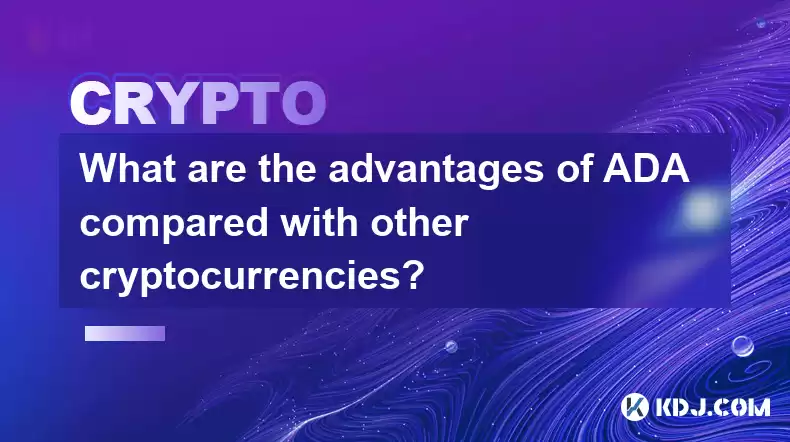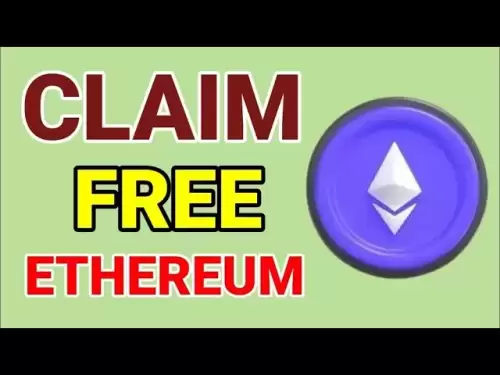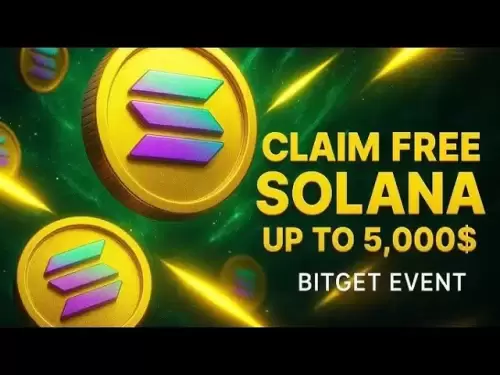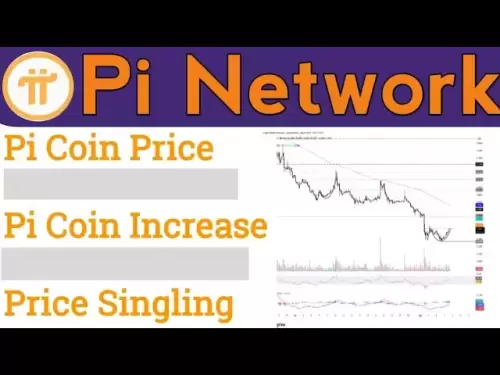-
 Bitcoin
Bitcoin $118300
1.01% -
 Ethereum
Ethereum $4215
0.69% -
 XRP
XRP $3.198
-3.83% -
 Tether USDt
Tether USDt $1.000
-0.01% -
 BNB
BNB $803.4
-0.53% -
 Solana
Solana $180.3
-0.67% -
 USDC
USDC $0.9998
-0.01% -
 Dogecoin
Dogecoin $0.2334
-1.49% -
 TRON
TRON $0.3394
0.86% -
 Cardano
Cardano $0.7980
-1.45% -
 Chainlink
Chainlink $22.19
6.65% -
 Hyperliquid
Hyperliquid $43.41
0.13% -
 Stellar
Stellar $0.4407
-3.13% -
 Sui
Sui $3.843
-2.24% -
 Bitcoin Cash
Bitcoin Cash $564.7
-3.74% -
 Hedera
Hedera $0.2588
-3.41% -
 Ethena USDe
Ethena USDe $1.001
0.00% -
 Avalanche
Avalanche $23.64
-3.37% -
 Litecoin
Litecoin $120.0
-4.01% -
 Toncoin
Toncoin $3.342
-1.11% -
 UNUS SED LEO
UNUS SED LEO $9.038
0.60% -
 Shiba Inu
Shiba Inu $0.00001347
-0.81% -
 Uniswap
Uniswap $10.69
-4.58% -
 Polkadot
Polkadot $4.034
-1.30% -
 Dai
Dai $1.000
0.01% -
 Bitget Token
Bitget Token $4.472
-1.52% -
 Cronos
Cronos $0.1571
-3.04% -
 Pepe
Pepe $0.00001207
-2.21% -
 Monero
Monero $273.8
-3.19% -
 Ethena
Ethena $0.7520
2.75%
What are the advantages of ADA compared with other cryptocurrencies?
Cardano (ADA) excels through its peer-reviewed security, scalable architecture, energy-efficient PoS consensus, and focus on decentralized governance and interoperability, fostering a robust and sustainable ecosystem for dApps.
Mar 05, 2025 at 04:00 am

Key Points:
- Scalability: Cardano's layered architecture and Ouroboros consensus mechanism offer superior scalability compared to many other cryptocurrencies.
- Security: Cardano's rigorous peer-reviewed research and development process contributes to a robust and secure network.
- Sustainability: Cardano utilizes a Proof-of-Stake (PoS) consensus mechanism, making it significantly more energy-efficient than Proof-of-Work (PoW) systems.
- Decentralization: Cardano aims for a highly decentralized network through its governance model and community involvement.
- Smart Contracts & DApps: Plutus, Cardano's smart contract platform, enables the development of decentralized applications (dApps) with enhanced security and functionality.
- Interoperability: Cardano is actively developing solutions for cross-chain interoperability, allowing communication and asset transfer between different blockchains.
What are the advantages of ADA compared with other cryptocurrencies? Cardano (ADA), unlike many other cryptocurrencies, boasts a unique approach built on peer-reviewed academic research. This rigorous methodology distinguishes it by focusing on creating a provably secure and scalable blockchain. This contrasts with some projects that prioritize rapid development over thorough testing and validation. The emphasis on research translates to a more robust and less error-prone system.
One major advantage of ADA lies in its scalability. Many cryptocurrencies struggle to handle a high volume of transactions without significant delays or increased fees. Cardano’s layered architecture, separating the settlement layer from the computation layer, addresses this scalability issue efficiently. This design allows for higher transaction throughput and faster confirmation times compared to some older, less adaptable systems.
Security is paramount in the cryptocurrency world. Cardano employs a Proof-of-Stake (PoS) consensus mechanism, Ouroboros, known for its energy efficiency and enhanced security compared to the energy-intensive Proof-of-Work (PoW) used by Bitcoin. The PoS mechanism also promotes decentralization by distributing the validation process among numerous stakeholders, reducing the risk of single points of failure.
Environmental concerns are increasingly important. Cardano's PoS consensus significantly reduces its carbon footprint compared to PoW systems. This makes ADA a more environmentally friendly option for investors and users concerned about the ecological impact of their cryptocurrency investments. The lower energy consumption translates to lower operational costs and a smaller environmental impact overall.
Cardano’s focus extends beyond simple transactions. Its smart contract platform, Plutus, enables the creation of decentralized applications (dApps). Plutus is designed with security as a core principle, aiming to prevent vulnerabilities often exploited in other smart contract platforms. This enhanced security enhances the trust and reliability of dApps built on the Cardano network.
Interoperability is a key challenge in the cryptocurrency space. Different blockchains often operate in isolation. Cardano is actively working on solutions to improve interoperability, allowing for seamless communication and asset transfer between different blockchains. This will expand the functionality and utility of ADA and the Cardano ecosystem.
The governance model of Cardano is another key differentiator. It aims for a highly decentralized governance structure, involving the community in decision-making processes. This participatory approach ensures the network’s development aligns with the interests of its users. This differs from more centralized projects where a smaller group holds more power.
The development roadmap of Cardano is transparent and well-defined. The project progresses through planned phases, allowing for controlled growth and iterative improvements. This contrasts with some cryptocurrencies where development is less structured and predictable, leading to uncertainty for investors. This methodical approach ensures long-term stability.
Cardano’s community is a significant asset. A large and active community contributes to the network's security, development, and adoption. This community support ensures the longevity and resilience of the Cardano ecosystem. This collective effort makes the network more robust.
The long-term vision of Cardano aims to create a financially inclusive and sustainable global ecosystem. Its focus on research, security, and scalability positions it as a potential leader in the future of decentralized finance (DeFi). This contrasts with projects focusing solely on short-term gains.
Frequently Asked Questions:
Q: How does Cardano's scalability compare to Ethereum?
A: Cardano's layered architecture and Ouroboros PoS mechanism aim for significantly better scalability than Ethereum's current PoW system, which suffers from congestion and high transaction fees. However, actual performance depends on network usage.
Q: Is Cardano truly decentralized?
A: Cardano strives for high decentralization through its governance model and distributed stake distribution, but complete decentralization is an ongoing process and constantly challenged. The degree of decentralization is a subject of ongoing discussion within the community.
Q: What are the risks associated with investing in ADA?
A: As with all cryptocurrencies, investing in ADA carries inherent risks including market volatility, regulatory uncertainty, and potential technological vulnerabilities. Research and due diligence are crucial before investing.
Q: How does Cardano's energy consumption compare to Bitcoin?
A: Cardano's PoS mechanism consumes significantly less energy than Bitcoin's PoW mechanism, making it a more environmentally friendly option. The exact energy consumption figures vary depending on network activity.
Q: What are some examples of dApps built on Cardano?
A: The number of dApps on Cardano is growing, but it's still relatively smaller than Ethereum. Examples include decentralized exchanges (DEXs), supply chain management platforms, and various other applications still under development.
Q: How does Plutus compare to other smart contract platforms?
A: Plutus prioritizes security and formal verification, aiming to reduce vulnerabilities common in other platforms. However, its maturity and the overall number of deployed smart contracts are still developing compared to more established platforms.
Q: What is the future outlook for Cardano?
A: The future outlook for Cardano depends on various factors, including technological advancements, market adoption, and regulatory developments. Predicting the future of any cryptocurrency is inherently speculative.
Disclaimer:info@kdj.com
The information provided is not trading advice. kdj.com does not assume any responsibility for any investments made based on the information provided in this article. Cryptocurrencies are highly volatile and it is highly recommended that you invest with caution after thorough research!
If you believe that the content used on this website infringes your copyright, please contact us immediately (info@kdj.com) and we will delete it promptly.
- Dogwifhat's Comeback: Solana Meme Coin Mania and Beyond!
- 2025-08-10 18:30:15
- Shiba Inu Price Drop Alert: Can Google AI Predict the Future?
- 2025-08-10 18:30:15
- NEAR Protocol Rebound: Eyes on $4.63 as Bullish Momentum Builds
- 2025-08-10 17:30:13
- Bitcoin Cash Halving: Will the Price Fall or Fly?
- 2025-08-10 17:30:13
- Uniswap (UNI) Under Bearish Pressure: A Technical Analysis Deep Dive
- 2025-08-10 17:30:15
- DOT Price on the Rise: Polkadot's Bullish Momentum Heats Up!
- 2025-08-10 17:30:15
Related knowledge

How to purchase Aragon (ANT)?
Aug 09,2025 at 11:56pm
Understanding Aragon (ANT) and Its PurposeAragon (ANT) is a decentralized governance token that powers the Aragon Network, a platform built on the Eth...

What is the most secure way to buy Ocean Protocol (OCEAN)?
Aug 10,2025 at 01:01pm
Understanding Ocean Protocol (OCEAN) and Its EcosystemOcean Protocol (OCEAN) is a decentralized data exchange platform built on blockchain technology,...

Where can I buy UMA (UMA)?
Aug 07,2025 at 06:42pm
Understanding UMA and Its Role in Decentralized FinanceUMA (Universal Market Access) is an Ethereum-based decentralized finance (DeFi) protocol design...

How to buy Storj (STORJ) tokens?
Aug 09,2025 at 07:28am
Understanding Storj (STORJ) and Its Role in Decentralized StorageStorj is a decentralized cloud storage platform that leverages blockchain technology ...

What is the best app to buy Nano (NANO)?
Aug 09,2025 at 03:35am
Understanding Nano (NANO) and Its Unique FeaturesNano is a feeless, instant cryptocurrency designed for fast peer-to-peer transactions. Unlike many ot...

Where can I purchase Siacoin (SC)?
Aug 08,2025 at 11:14am
Understanding Siacoin (SC) and Its Role in the Sia NetworkSiacoin (SC) is the native cryptocurrency of the Sia decentralized cloud storage platform, a...

How to purchase Aragon (ANT)?
Aug 09,2025 at 11:56pm
Understanding Aragon (ANT) and Its PurposeAragon (ANT) is a decentralized governance token that powers the Aragon Network, a platform built on the Eth...

What is the most secure way to buy Ocean Protocol (OCEAN)?
Aug 10,2025 at 01:01pm
Understanding Ocean Protocol (OCEAN) and Its EcosystemOcean Protocol (OCEAN) is a decentralized data exchange platform built on blockchain technology,...

Where can I buy UMA (UMA)?
Aug 07,2025 at 06:42pm
Understanding UMA and Its Role in Decentralized FinanceUMA (Universal Market Access) is an Ethereum-based decentralized finance (DeFi) protocol design...

How to buy Storj (STORJ) tokens?
Aug 09,2025 at 07:28am
Understanding Storj (STORJ) and Its Role in Decentralized StorageStorj is a decentralized cloud storage platform that leverages blockchain technology ...

What is the best app to buy Nano (NANO)?
Aug 09,2025 at 03:35am
Understanding Nano (NANO) and Its Unique FeaturesNano is a feeless, instant cryptocurrency designed for fast peer-to-peer transactions. Unlike many ot...

Where can I purchase Siacoin (SC)?
Aug 08,2025 at 11:14am
Understanding Siacoin (SC) and Its Role in the Sia NetworkSiacoin (SC) is the native cryptocurrency of the Sia decentralized cloud storage platform, a...
See all articles

























































































